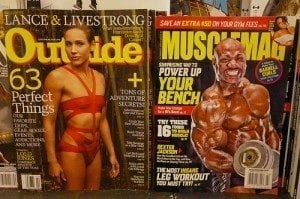
LinkedIn is a vital tool for networking as a college student
Many college students and new grads think of LinkedIn as a tool that’s valuable to more established workers, and not so valuable to them. That’s not true! LinkedIn can be a fantastic resources for finding internships, getting career advice, and exploring opportunities. Being as it’s different than many other social networks, it’s easy to make a misstep that could hurt your career. Here are some tips we’ve gathered to help you use LinkedIn as a college student.
Use an appropriate profile picture. If you’ve gotten headshots taken, this is the place you should display them. Failing that, you should select a photo that represents how you want employers to see you: clean, responsible, happy. Save the funny or zany ones for Instagram, and go with a flattering picture of just your face for LinkedIn.
Be careful in your invitation-sending. Generally, you should stick to sending invitations only to people you know in real life. Occasionally, you can request someone you haven’t met personally, but whose work you admire and are familiar with. For example, if one of your classes has a guest speaker in your field, it’s likely okay to request him or her on LinkedIn. Just make sure to personalize your message a little bit. Something like, “Hello Mr. Smith. I am in Professor Jones’s psychology class, and I really enjoyed learning about your research methodology last Tuesday. I’m interested in the work that your company is doing, and any summer internship possibilities you might have available.”
Make your summary and experience detailed. This is your chance to show employers who you are and why they should hire you. Do you really want to come across as boring or forgettable? Of course not. Spend time on these areas of your profile, and have a peer or instructor look over your profile for anything you may have missed.
Show, don’t tell. This tip was given to me by a resume editor, but I think it applies here as well. Instead of just listing your job titles and descriptions, talk specifically about your accomplishments. Instead of listing “wrote for the campus newspaper, focusing on features,” write “Wrote a series on faculty salaries and ensuing protests, two weeks after publication the university amended the budget” and “Wrote several articles about affirmative action at the university, went on campus radio to discuss the ramifications of new measures.” Something detailed and impressive is always the way to go.
List everything. Don’t forget to mention your volunteer experience, career-related clubs and activities, and any paid or unpaid internships. They count, even if you don’t feel like they were real “work experience.” Employers do look at these sections on your profile, in hopes of hiring a well-rounded person.
Do you use LinkedIn? What have you found helpful in creating and using your profile? Let us know at @CNCollegeNews.















